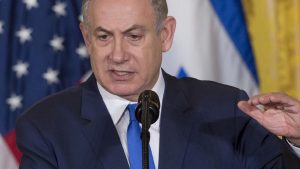
Prime Minister Benjamin Netanyahu is the most underappreciated leader Israel has ever had.
In the near future, he will likely take Israel’s first prime minister David Ben-Gurion’s title of longest serving premier.
Yet, Netanyahu is not only perceived as being a leader of less significance than Ben-Gurion. He is considered a less consequential leader than prime ministers like Levi Eshkol, Yitzhak Rabin and Ariel Sharon, whose records in office are far thinner than Netanyahu’s.
Both Netanyahu’s detractors and supporters view his long stewardship of Israel as largely inconsequential because Netanyahu has not overseen any grand, headline grabbing initiatives.
He didn’t declare Israel’s independence, as Ben-Gurion did. He didn’t lead Israel through the 1967 Six Day War and so oversee Israel’s greatest military victory to date, as Eshkol did. He didn’t recognize the PLO, like Rabin. He didn’t withdraw from Gaza, like Sharon did. He hasn’t withdrawn from Judea and Samaria, as Ehud Barak and Ehud Olmert tried to do. He didn’t surrender south Lebanon to Hezbollah, as Barak did.
True, grand initiatives like all of these have left their marks on Israel – for better and for worse. And no, Netanyahu has no grand initiative in his record.
But when you stop and think about what Netanyahu has accomplished during his more than a decade in office, it rapidly becomes clear that he has adroitly and successfully transformed Israel for the better in a way that no leader except Ben-Gurion has done.
Netanyahu has operated in a media environment more hostile than any his predecessors ever faced. Despite this, beginning with his first term in office in the late 1990s, Netanyahu authored and implemented the economic reforms that transformed Israel from a sclerotic socialist backwater into a prosperous first world economy. All of Israel’s citizens have benefited from the change. Consider, for instance, that when Netanyahu replaced Olmert in office in 2009, Israel’s per capita GDP stood at $27,000. By 2016, it had risen to $37,000.
Rather than seeking to transform Israel’s diplomatic weakness through a grand gesture of appeasement to the PLO, as so many of his predecessors tried to do, Netanyahu opted, instead to leverage the economic prosperity he engendered. He turned Israel’s economic strength into the foundation of a new, far more powerful diplomatic strategy. It served to return Israel to Africa after a forty year absence.
More importantly, Netanyahu used Israel’s comparative economic advantages to develop strong diplomatic and economic relations with China, India and other major markets and great powers for the first time in Israel’s history.
As for Russia, far from the spotlights, Netanyahu has skillfully and quietly cultivated a strong personal relationship with Russian President Vladimir Putin based on mutual respect. Military and intelligence officers credit the understandings Netanyahu has reached with Putin regarding the war in Syria as the reason Israel was able to avoid getting sucked into the conflict on its northern border while still protecting its strategic interests.
As for Israeli-US ties, for eight years, Netanyahu deftly ducked and parried and waited out Barack Obama’s presidency. He kept Israel strong and safe and able to defend itself despite Obama’s support for its enemies and hostility toward the Jewish state.
No other Israeli leader could have withstood the Obama administration’s pressure to make strategically cataclysmic concessions to the Palestinians. So too, no Israel leader would have been capable of leading the opposition to Obama’s nuclear deal with Iran as Netanyahu did.
Had Netanyahu remained silent as Obama gave the keys to the nuclear club to the ayatollahs, Obama and his echo chamber would have successfully demonized opposition to the deal.
It was Netanyahu with his unswerving, reasoned opposition to the centerpiece of Obama’s foreign policy that empowered Republicans and even some Democrats to maintain their public opposition to the deal. Their opposition in turn paved the way for President Donald Trump’s decision last October to refuse to certify Iranian compliance with its terms.
As for Trump, Netanyahu has deftly cultivated his relations with the new president. Trump’s respect for Netanyahu’s statesmanship empowers the president to break with the failed Middle East policies of his predecessors and base his policies on support for America’s allies and opposition to its enemies.
So yes, it is true that Netanyahu’s long tenure in office has been largely undramatic. But his record of accomplishments makes clear that drama is not what we should be seeking.
Under his quiet, workaday leadership, Netanyahu has transformed Israel into an economic and military power. He has cultivated good relations with Israel’s regional neighbors and with the nations of the world.
He has developed constructive and mutually beneficial ties with all the major world powers while preserving and enhancing Israel’s strategic alliance with the US. All of these accomplishments render Netanyahu one of Israel’s most successful leaders. Indeed, they place him second only to Ben Gurion as the most significant leader Israel has ever had.



